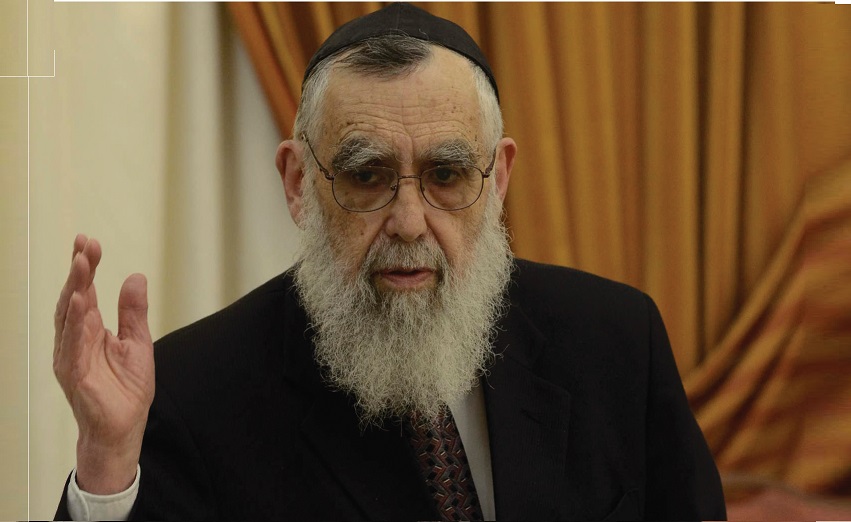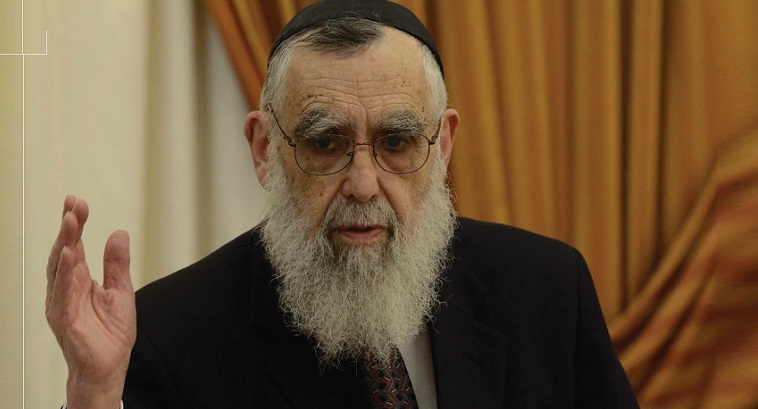Who We Really Are

The most important thing is how you live your life, not how big your funeral will be
What is left to say about Rav Chaim Kanievsky ztz”l that has not already been said?
Even two weeks after his death, it still remains remarkable that over a half-million mourners attended the funeral of this humble man who was not a head of state, or a famous celebrity, or a renowned politician, but one whose only desire was to continue learning — and living — Torah every possible moment of every day. So universal was the love and reverence for him that the proceedings were front-page news even in secular papers, and were carried by all Israeli radio and TV networks. An avowedly secular writer, who admitted that the word kadosh/holy had no meaning for him, wrote that simply watching this man interact with those seeking his advice and his blessing helped him understand the meaning of kadosh.
The genuineness of this overwhelming response is an indication of what Jews are really made of. No matter how distant we seem to be from G-d and Torah, deep down within each Jew there glows an eternal flame that is brightened by an encounter with purity, holiness, and an unbounded love for Jews of all kinds.
Such was the life of Rav Chaim Kanievsky; it rekindled our true inner selves, and reminded us of who we really are.
In the midst of the strife and resentments between chareidim and non-chareidim, he succeeded in uniting everyone: shtreimels, kippot serugot, kapotehs, caftans, sport jackets — all were present in tribute to a man for whom material things meant nothing, who lived a simple life in a tiny apartment, and who was a walking embodiment of the Shulchan Aruch and of the Torah. It is said that he was handed a Chumash at age three, and never let go of its infinite iterations for the next 91 years.
But I come not to gild the lily and to heap superfluous praise on a life that transcends all praise. Rather, it is to remind ourselves of an obvious idea:If the masses of Jews respond positively to that which is truly genuine and noble in one’s service of G-d and fellow man, then it is the sacred obligation of every observant Jew — chareidi, kippah serugah, chassidic, yeshivish, modern — to conduct his own life, as far as possible, in a truly genuine and noble way in the service of G-d and fellow man. To do so is to create a kiddush Hashem, sanctification of G-d’s Name, of which there is no greater mitzvah — for people will say in admiration: See how this ben Torah conducts himself, see how G-d’s Torah creates such model human beings. To do the opposite is to create a chillul Hashem, a desecration of G-d’s Name, of which there is no greater transgression — for then people will say with disdain: See how this ben Torah conducts himself; does the Torah create such ignoble and insensitive human beings?
Simply put, in the classic example of the mussar movement: A pious Jew who in his enthusiasm is running to do a mitzvah, and in so doing knocks over everyone in his path, is doing the reverse of a mitzvah.
A taxi driver, clearly not observant, was awed by the sheer numbers attending the funeral. “I’ll be lucky to have ten people at my own funeral,” he lamented.
Trying to comfort him, I replied: “If you live your life with honesty, and without offending your fellow man and without insulting G-d and His Torah, and you sincerely try to study and observe Torah as best you can, that puts you on the right path. The most important thing is how you live your life, not how big your funeral will be.” He was silent, looked straight ahead, and did not respond.
Whether my words penetrated, I do not know. But one overarching fact is clear: A person is judged by whom he admires. The measure of our Jewishness is to ask ourselves whom we admire most: a rock star, a top athlete, a Hollywood actor — or someone like Rav Chaim. This month the legendary Yiddishe neshamah rose to the surface for a brief shining moment, and demonstrated whom we really admire and who we really are.
We cannot all be a Rav Chaim Kanievsky, whose model animated and vitalized the multitudes, but we can all be Jews whose behavior during the course of any given day can affect the attitudes of dozens of people who cross our paths. Even if we positively affect just one person, it is as if we affected multitudes. (Cf. Sanhedrin 37a: “He who sustains one life has sustained an entire world.”)
This is a monumental responsibility: the elevation or the desecration of the immortal Name of G-d. That it rests in our very mortal hands is awe-inspiring. And that Rav Chaim reminds us of this is the lasting tribute to him.
(Originally featured in Mishpacha, Issue 906)
Oops! We could not locate your form.




